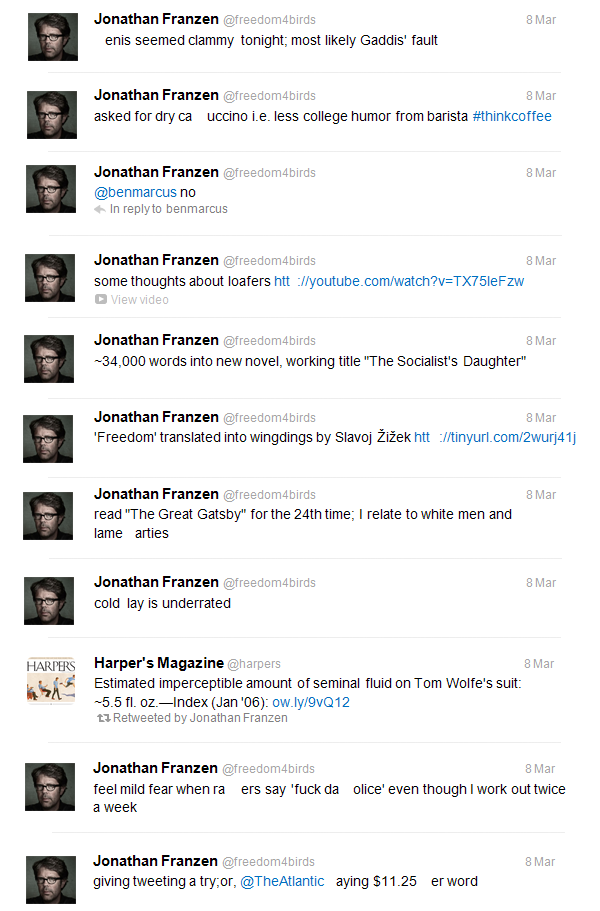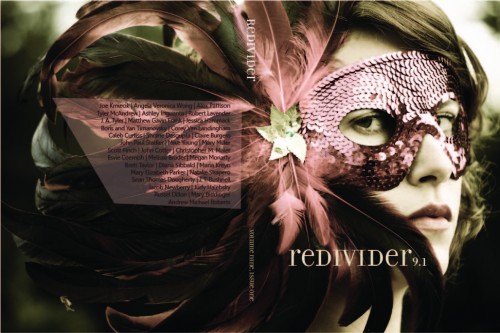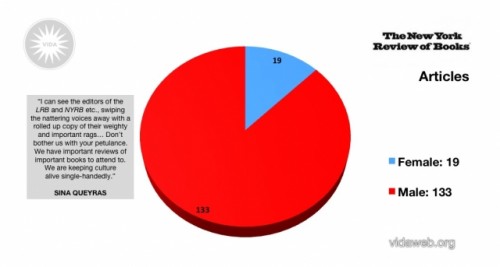Do As Franzen Does. Do What You Like

In some ways, we’ve brought this on ourselves; it is a slippery slope. First you wonder what Angelina Jolie had for breakfast because she was so great in that one movie or whatever and then you’re buying cereal and thinking, “Does Oprah eat Raisin Bran?” Eventually, you even start to give a damn about what famous writers think about the weather or, say, social networking, and someone like Jonathan Franzen revels in his dislike of Twitter and other means of social networking from his Important Writer perch and we respond because if Franzen hates Twitter does he hate us too? The angst is unbearable and yet it’s all sort of inevitable.
Franzen’s A Great American Writer and all but I don’t give a much of a damn about his opinions on anything (see: Edith Wharton obvi). Or I do. Is it really surprising that Franzen doesn’t care for Facebook or Twitter? His overall comportment does not suggest an affinity for the levity of social networking. I can’t really say I love Facebook, myself. It has become increasingly hard to make sense of the interface and I keep getting invited to parties and readings in Bali and Temecula and I don’t live in those places so the experience is, at best, fragmented. At the same time, I don’t need to proselytize my dislike unless I’m on Twitter. Who cares? My opinion doesn’t matter nor does Franzen’s, though he is Very Fancy so in the calculus of mattering, his irrelevant opinion is less irrelevant than mine. Math.
J. Franz talking smack about Twitter, though, thems fighting words.
Please forgive the shameless self-promotion, but did you guys know Puerto del Sol has a blog now? We’ve moved into the 21st century, yo. We’re talking writing, MFA, journal editing, AWP, fonts, avatars, internet, whatever. Come, visit, say hello.
linkdump.com
Today seems quiet. Everyone is probably packing?
Threats by Amelia Gray is out, and I can tell you it’ll do to your head/brain/skull all things promised, and more. (I had the pleasure of reading an advance copy, borrowed from someone who had borrowed it [now I have my own], but it is available HERE)
Picador has been reprinting the novels of Donald Antrim with new intros: George Saunders (The Verificationist), Jonathan Franzen (The Hundred Brothers), and Jeffrey Eugenides (Elect Mr. Robinson for a Better World). Elect Mr. Robinson… will be out this June.
Kaleidoscope is a randomized novella by Jianyu Pên.
Madras Press recently released a special edition of “Stone Animals” by Kelly Link, with illustrations and a letterpressed cover.
The second issue of The Coffin Factory just came out, with work by Aimee Bender, Lydia Davis, Edwidge Danticat, Justin Taylor, Adam Wilson, etc. (more later)
The Guggenheim has digitized many of its (out-of-print) publications.
Redivider FINALLY (yes I’m calling you out) has an updated website with the new issue, featuring the talented Mike Young, Mary Miller, J.A. Tyler, Melissa Broder, etc. The cover is nice:
Some of these things will be available at AWP. Do you think someone will write a blog post soon called “AWP recap?” What if that didn’t happen?
VIDA numbers I’d like to see
It’s disheartening and necessary to see the same VIDA numbers every year, but I’d also like to see three different (and more difficult to obtain) statistics next time.
1. A gender breakdown of articles and stories submitted & pitched to magazines. In my experience with slush piles, they can be quite male-heavy and I’ve heard the same from editors.
2. A gender breakdown of books submitted to agents and publishers. (See above)
3. A breakdown of how many books written by men are marketed as “literary” or serious works versus how many by women are marketed as such. This, I think, is the one of the biggest and harder to tackle problems. Books written by women get a picture of a bare shoulder or a pair of legs on it and then men don’t buy it and “serious” reviewers don’t want to review it. Pretty simple. Pretty much a bummer.
4. A gender breakdown of how many male writers are solicited by these magazines. Because, you know, your short story probably isn’t going to make it out of the The New Yorker slush pile. It just isn’t. We know the major magazines (hell, even a lot of the smaller ones) are made almost exclusively out of solicited material. We know that. And because of the same problems that the VIDA numbers point out each year, editors know less women they want to solicit. So, yeah, it’s a vicious cycle, blah blah blah, but one thing you can do about it is be a woman and work hard and submit everywhere until you cannot be ignored.
Exits Are
So I hesitate to use this space to self-promote, but in this case I will make an exception, for a number of reasons, beginning with the fact that the project is online and free.
Exits Are is a series of collaborative stories that are also games. The games borrow their format and many of their conventions from text adventures (“interactive fiction”). From the about page: “A text adventure is a game that takes place in prose. The computer describes a world to you one room at a time, writing in the second person. ‘You stand in the center of a cool, dark cave,’ says the computer. ‘Exits are north, south, east, and west.’ The computer waits for you to tell it what you want to do. ‘Go east,’ you might say. Or if there is a key, you might say ‘take key.’ The computer parses your commands as best it can and tells you what happens next. . . . love text adventures, but they usually disappoint me. I wanted a way to make them more open-ended, less about puzzle-solving and more about language: its weirdness, its beauty. So I started playing a game with some of the writers I knew. Using gchat, I pretend to be a text adventure. The other writer is the player. We use the form of the text adventure to collaborate on some kind of strange, fun narrative. The only rule is that we take turns typing. We never discuss what we’re going to do in advance, so the results are improvisational and surprising/exciting/stressful/upsetting for both participants. Every time, the player does things I never could have seen coming.” READ MORE >
I have become dead to your book recommendations.
Roxane recently mentioned one of those weird, unspoken things about writers: we are constantly pretending to buy and read each other’s books. Publish something yourself and you’ll quickly see what I mean. You get an e-mail every time someone makes an order. The e-mail tells you the buyer’s name and even where he or she lives. So when someone says on Facebook, “I can’t wait to get this book!” and they tag you in the post so you’ll definitely see it, you get really excited about the order and you look forward to mailing them the book that you’re sure they’ll enjoy, and you wait and you wait for that e-mail with the person’s name and address, but the order never comes, and because you want to stay friendly with the person you tell yourself that it wasn’t a lie, that they probably just forgot. And sometimes they really did forget.
Sometimes they say, “I just ordered this book, you should too!” and you can plainly see that they haven’t ordered the book, and this is harder to forgive, but really, who cares? Why should anybody care?
Flamingo Rampant! Gender Independent Kids Books
The amazing writer S. Bear Bergman has started a Kickstarter to fund a really exciting, much needed project: Flamingo Rampant–Gender Independent Kids Books.
Why?
Kids’ ability to see themselves in books available to them is an incredibly valuable thing. Any parent, teacher, librarian, or caregiver will tell you that kids love books that reflect their daily experience. Kids with dogs like it when the kid in the book has a dog; kids with non-nuclear family structures cherish books in which families like theirs are shown.
Knowing this – or instinctively grasping it, as most of us do – makes it easy to see the value of children’s books with trans characters to trans or gender-independent kids (or kids with transgender family members).
More details here! This is definitely a project worth throwing a few dollars at.
Mike and Mike bring you The Volta
Hey Mike is there a one stop poetry megasite where I can 1) go to read cool poetics essays by everybody from C.D Wright to Laura Glenum, 2) catch up on reviews of books out from presses like City Lights, 3) watch videos of shit like Joshua Clover getting kicked out of a bank, 4) scan all the current poetry news that stays news and otherwise, 5) dive into a nicely manageable monthly poetry journal that features one poem by three people per issue, especially if those people are like Noelle Kocot or something, and 6) speaking of people also maybe find smart interviews with people like Tyrone Williams? Also it would help if this online poetry megasite were based out of the American desert. Like not the proverbial American desert but some actual sand and shit. Like also if the site were designed to be as clean and navigable as a desert highway.
Oh cool, I like them. What is this thing called?
Awesome. Also why is there a light on your water pitcher that flashes different colors depending on filter age?
I have no idea, but it’s terrifying and soothing in equal measures.
 Yeah, yeah, ‘equal measures,’ boring, whatever Mike, if you’re so fucking smart why don’t you go talk to yourself using some bloated smart person prepositional phrases like ‘that which’ while I actually do something with my life like checking out The Volta.
Yeah, yeah, ‘equal measures,’ boring, whatever Mike, if you’re so fucking smart why don’t you go talk to yourself using some bloated smart person prepositional phrases like ‘that which’ while I actually do something with my life like checking out The Volta.
=(
Sorry just kidding Mike I know how you need relentlessly undiluted adoration all the time so don’t worry I still love you.
=)!!!
Wow I didn’t think you could put exclamation marks after emoticons, that’s really kind of a new low, please don’t ever talk to me again.








